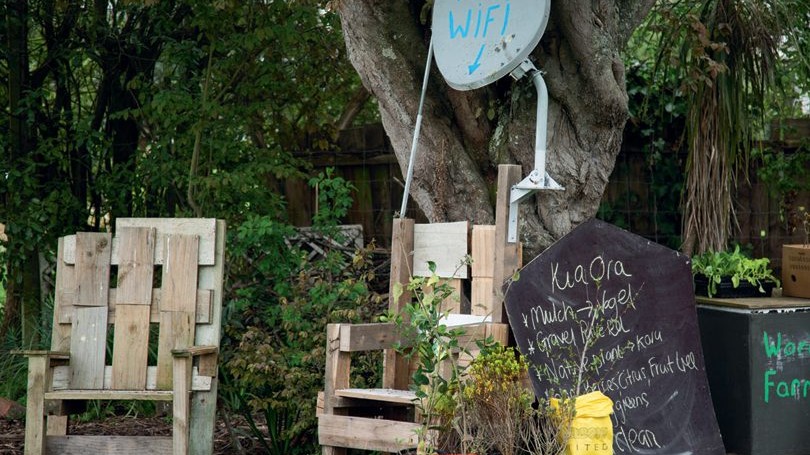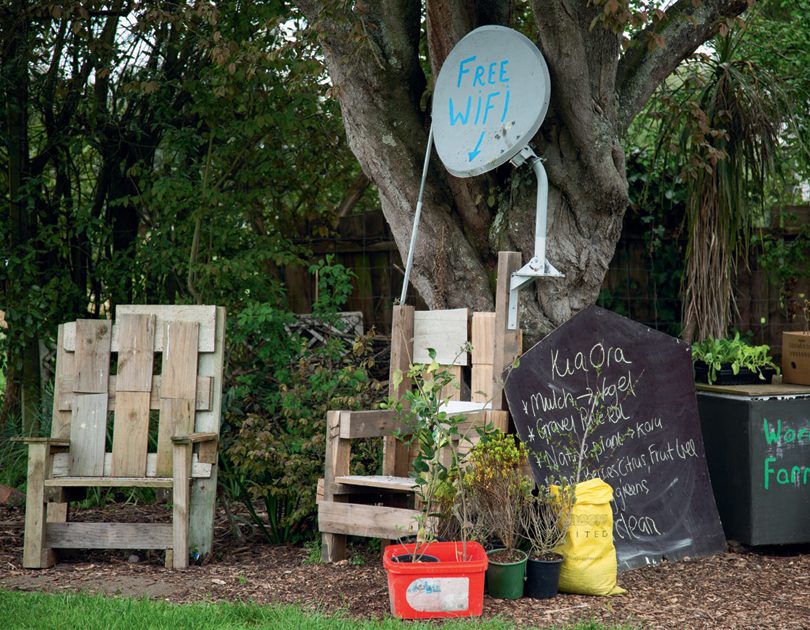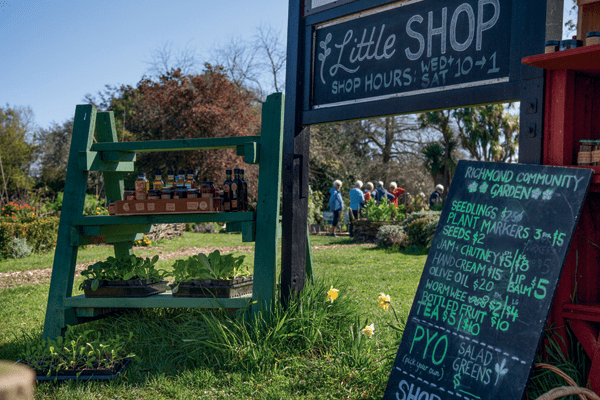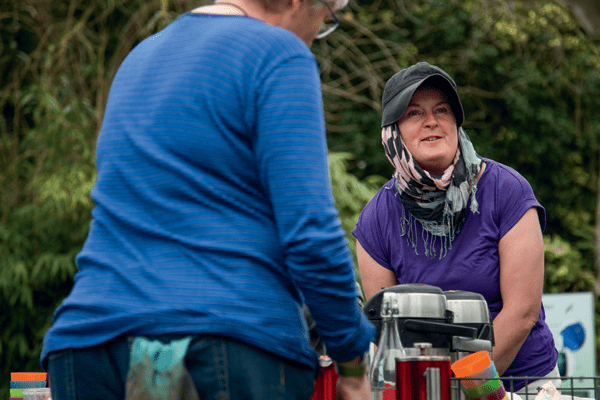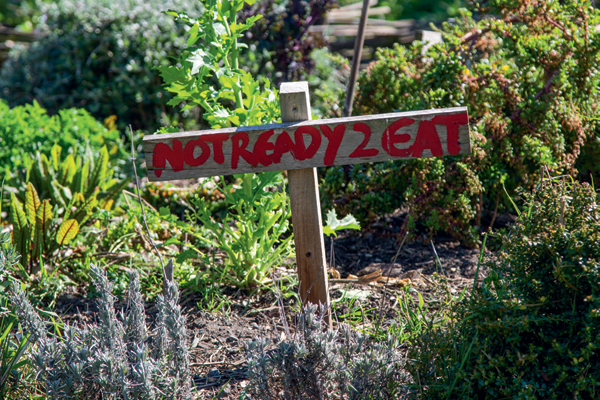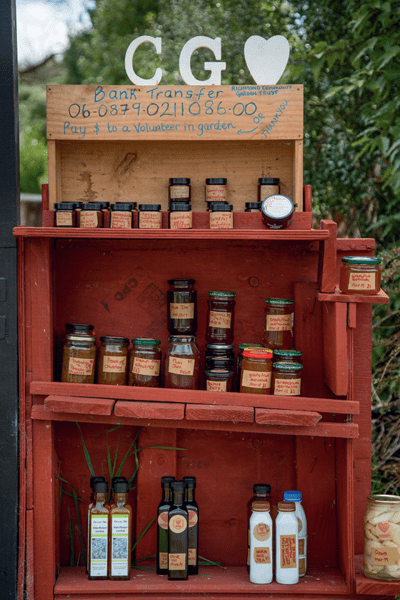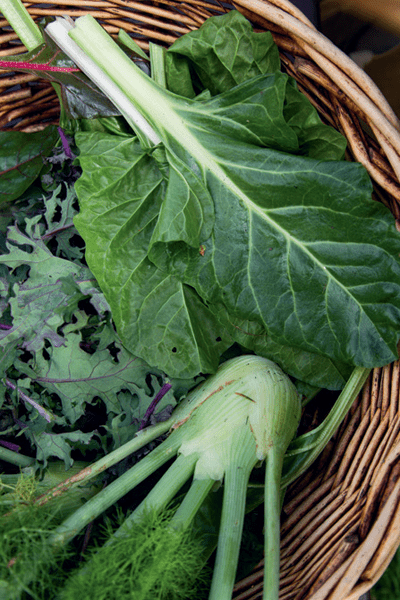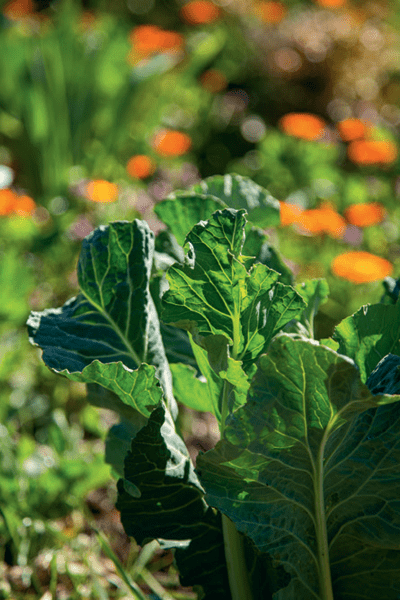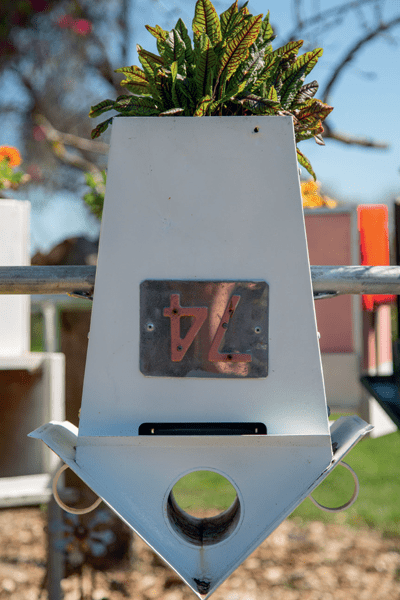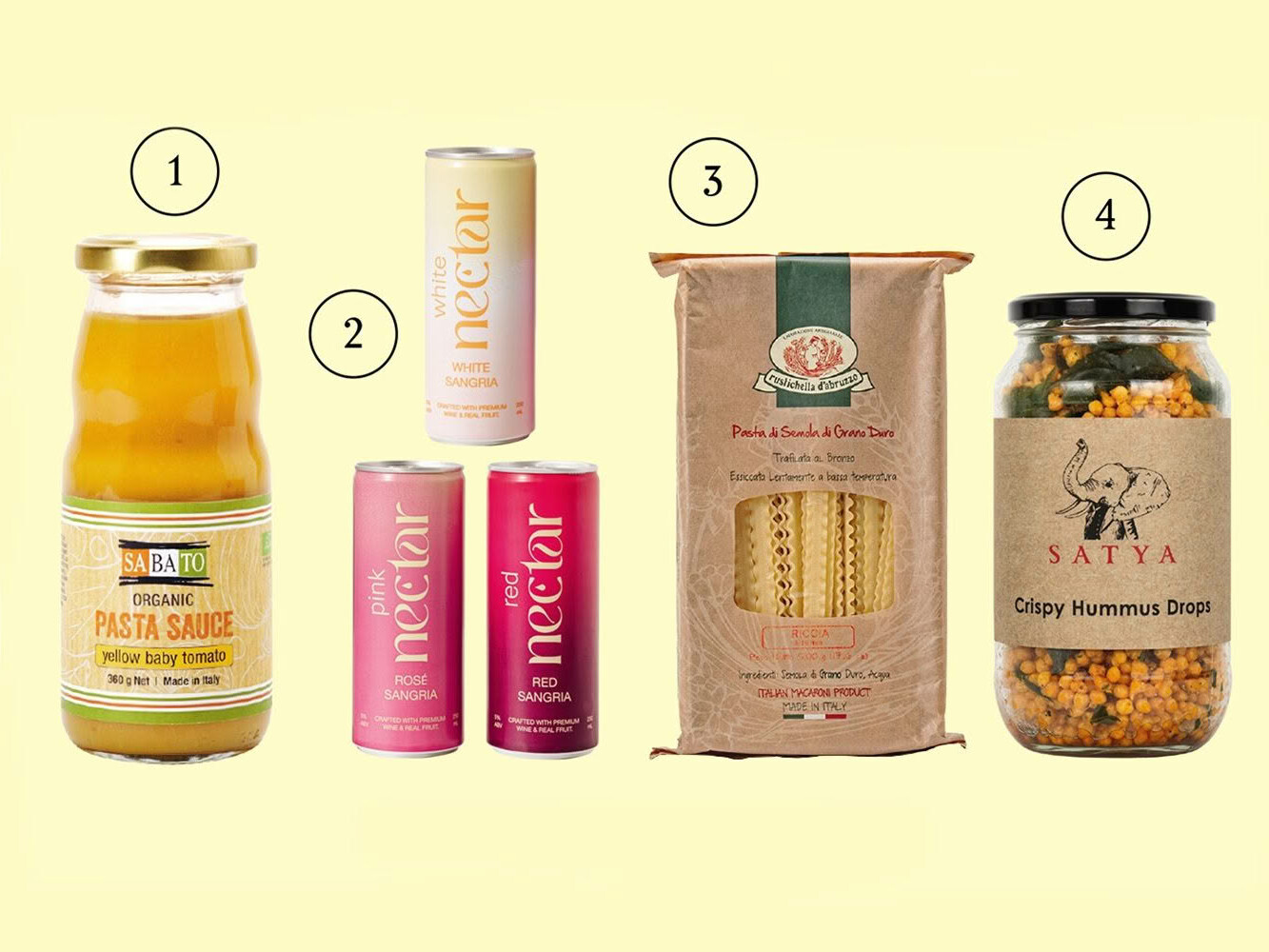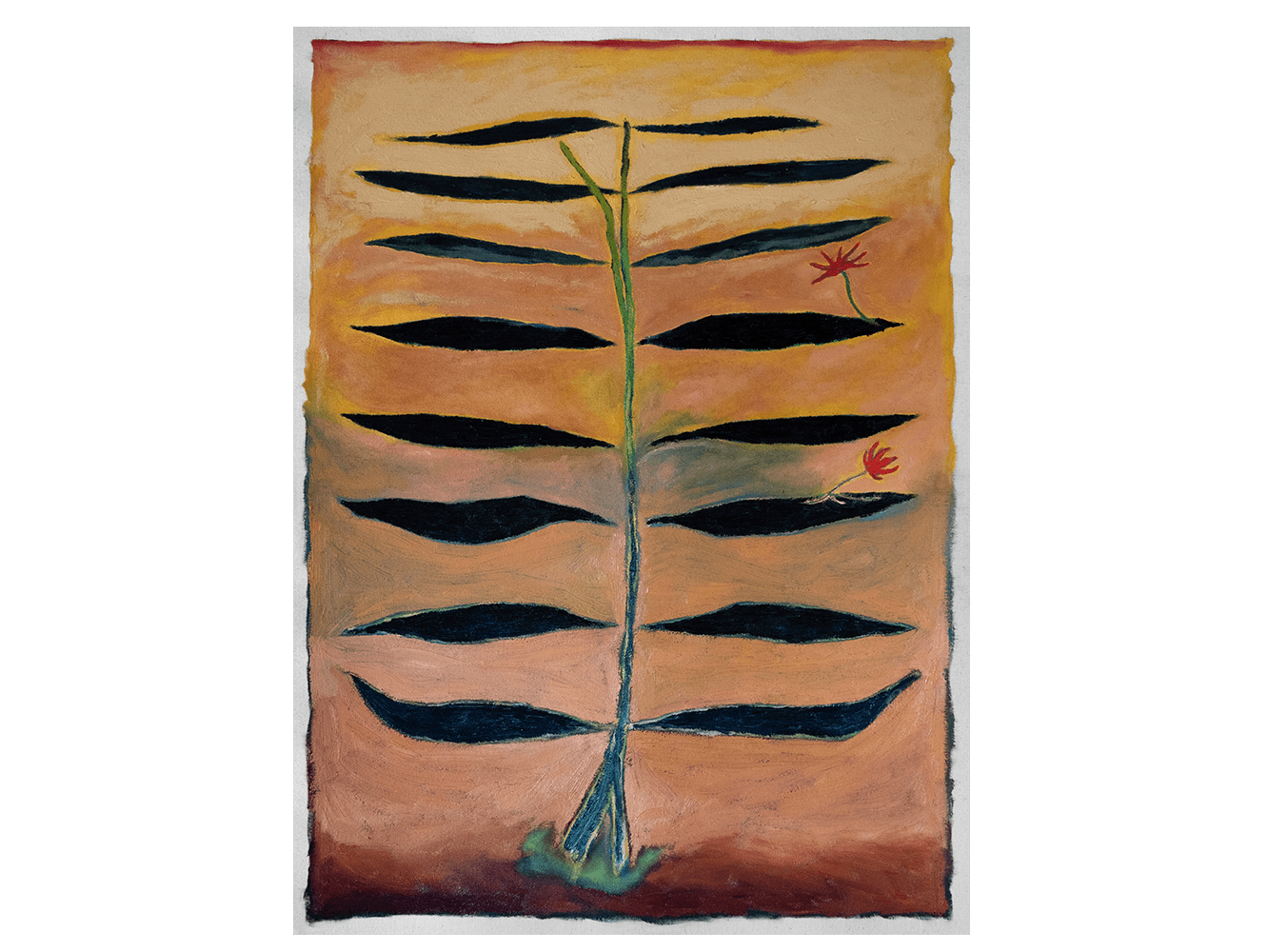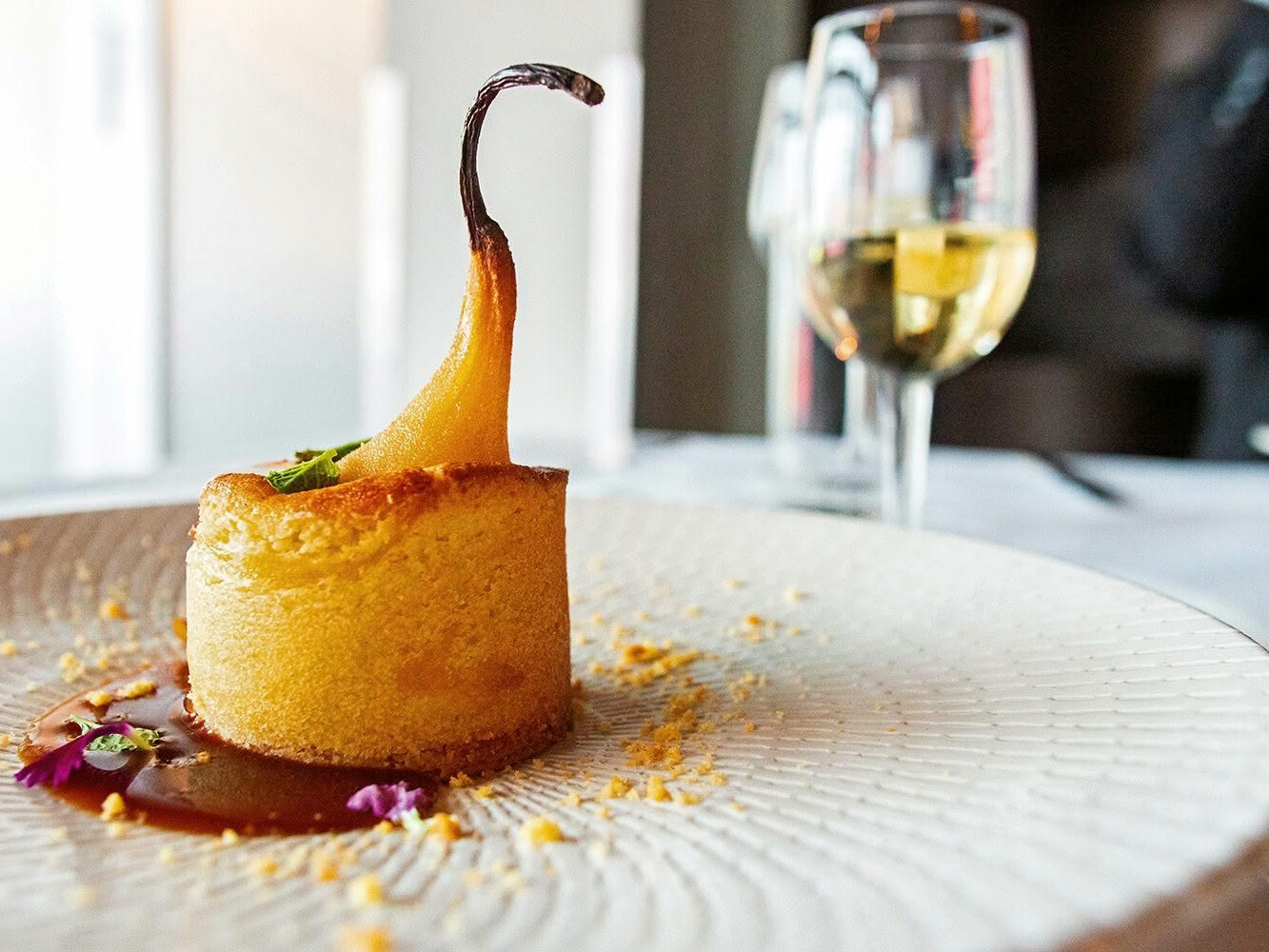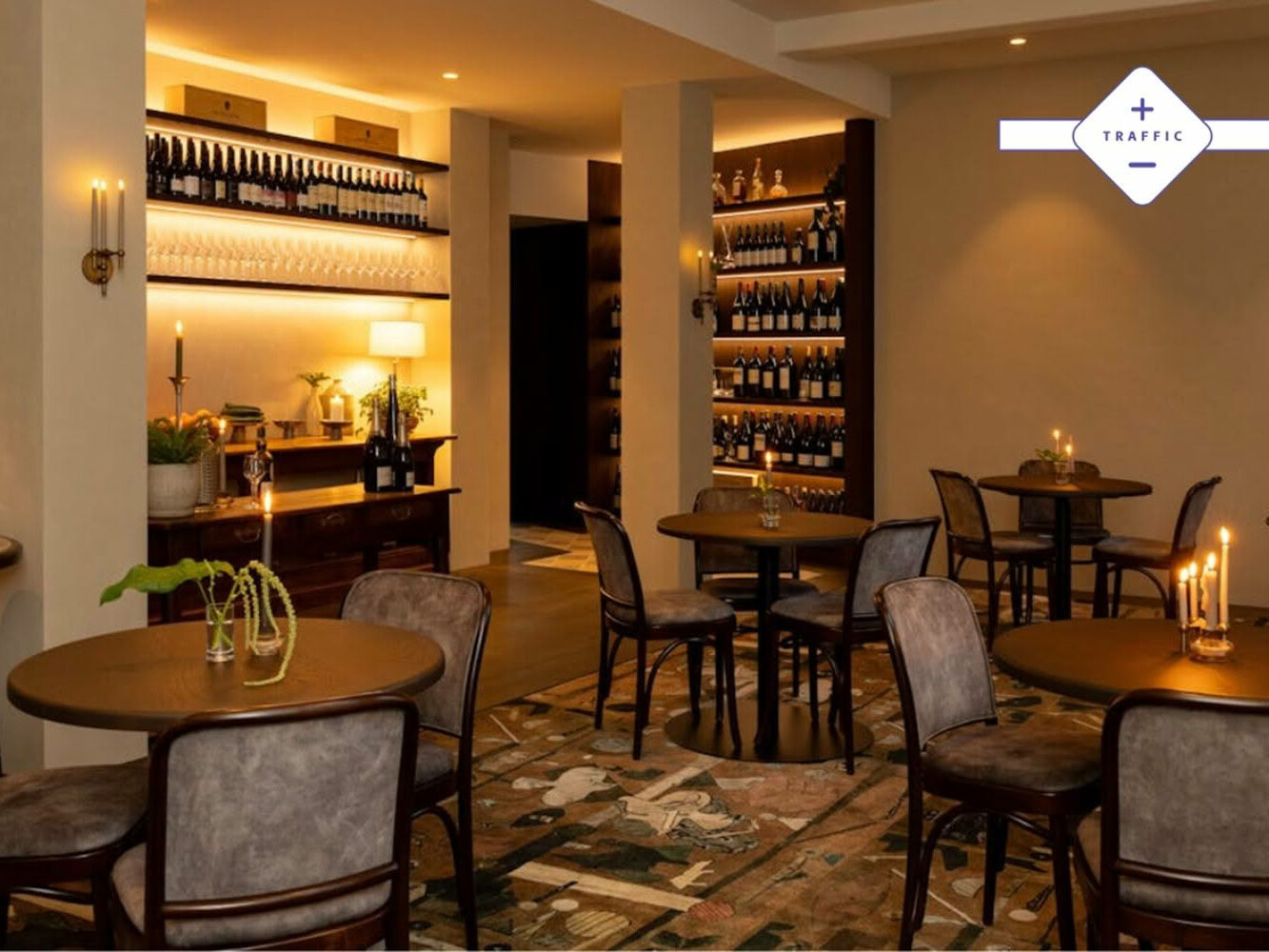JAX HAMILTON discovers community gardens and growing hubs sprouting on Christchurch’s reclaimed land.
WE’RE ALL AWARE that God isn’t making any more land, but with reclaimed spaces now readily available, Christchurch has witnessed a steady growth of local community gardens, food forests and innovative edible garden design. With this in mind, I headed out into my neighbourhood to pay some of these green-fingered converts a visit.
First on my list is The Richmond Community Garden (pictured), tucked behind Avebury House, one of the few remaining heritage houses in Christchurch. Within a river boundary I found an oasis of tranquillity and community amid the ambitious raised, woven circular beds. Here I met fresh-faced and fiercely passionate Cathy Allden, once a corporate and now a green-fingered garden coordinator.
Where five houses and a rest home once stood, Cathy and her team have created a beautiful destination. “Anyone passing is welcome to wander through and help themselves to our picking garden of vegetables, herbs, heritage olive and fruit trees,” she boasts. “This is a multi-faceted site for learning as well as recreation, events and workshops. We’re open to the public and for volunteer days three days a week. Everyone is welcome.”
The main objective for The Richmond Community Garden is to open their Riverlution Café later this year, a small container space overlooking the river that will provide simple fresh food with produce from the garden and fabulous coffee. On my way out, I stopped to browse in their community shop, where I purchased a bottle of olive oil, elderflower cordial and, most importantly, a jug of ‘tiger worm wee’ organic fertilizer.
Smack bang in the middle of the CBD I’m on the corner of Manchester and Peterborough Streets. Easily visible through an iron fence and an old-fashioned rusted gate, I spy luscious, healthy beds of seedlings, herbs, vegetables and fruit, set against the backdrop of the city hustle.
Introducing themselves as Chief Human Wrangler and Underground Scientist, Cultivate co-founders Fiona Stewart (psychologist) and Bailey Peryman (ecologist) are ready to tell me their story of helping to inspire a global vision. Cultivate’s philosophy is ‘Sow Love, Grow Love’, a model based on a youth development programme in parallel with an urban farming project. Fiona says, “When a young person comes to us, we support them to learn about who they are and what they want to do, as well as focus on appropriate employment skills. In this garden space, everyone is at the same level, working together towards the same cause.” To reinforce this, volunteers are welcomed, with an open day each Thursday.
The farming project is an intensive market garden, where they grow and supply fresh produce to local restaurants and eating establishments in the neighbourhood. In keeping with their ‘from earth to table’ sustainability ethos, the harvest is ultra-fresh, having been picked, packaged and delivered, where possible by bicycle, on the same day.
“The word ‘cultivate’ really hits on the head the importance of nurturing something – both human and plant-based – in a rigorous, methodical, GEMpurposeful way,” Bailey says. “And,” Fiona adds, “with intent.”
Cultivate has recently ventured into the online market with weekly, seasonal boxed subscriptions, but visitors can also purchase at the farm gate each day between 2-4pm. They will also occupy a stall in the CBD’s new farmers’ market, Riverside, a community of over 40 local market traders, restaurants, cafés and bars, opening later this year.
Within a two-minute walk from Cultivate and linked via bridges to the Town Hall and Margaret Mahy playground, is the Ōtākaro Orchard Project. With the frame erected, standing proud against the banks of the Avon, the public can view the steady progress, as the sustainably designed, wave-like glass structure slowly builds into an urban oasis. Still in the very early stages of development, this food hub and living laboratory, will produce over 100 species of edible plants as well as a public food forest, living classroom, amphitheatre and restaurant.
So how did it all begin? Coordinator Peter Wells tells me, “This all started when a multitude of city-based, grass-roots food producers sprang out of the rebuild. Generated by this opportunity was the vision to create a central hub of locally sourced food for the general public. This is the only community-led anchor project of the rebuild, involving 200 different ideas woven together to design a combined vision.” The first stages of the development, the Community Garden and Local Food Hub, will open early 2020.
My garden city of the future: living up to its name in every way.
SEE MORE FROM CUISINE
Design File / Jessica Crowe / stylist, painter / Whangamatā
Though you may not know Jessica Crowe’s name, if you are a regular…
Traffic July / August 2025
Josh and Helen Emett continue the elegance and success of Gilt, with…

